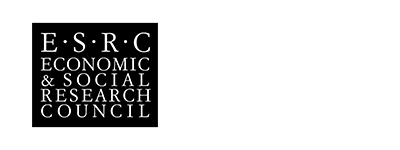Authored by Sarah Bell
Many people have asked me why I have chosen to focus specifically on vision impairment in this project. Some of the practical and research-related reasons for this are already set out in the background section of this website but I thought I might take the opportunity here to write a little more about the initial source of inspiration for it all.
It started when I first came across the work of the late Professor John Hull; an academic, husband and father whose eyesight began to deteriorate as a teenager, becoming totally blind in his mid-40s.
In his deeply moving book, Touching the Rock, Hull shares a series of reflections from the 1980s as he tried to make sense of blindness and what it would mean for his work, his family life and his way of being in the world. He describes many practical and emotional transitions; from the suffocation of being a sighted person in a world with diminishing sight, to a gradual sense of renewal as he began to combine ingenuity, diverse tricks and techniques, and support from loved ones to negotiate the multisensory, ever-shifting world of blindness.
In one quote, he notes the challenges of trying to share this non-visual world with sighted others:
“The loss of the sights of the city, the sea and the countryside, I can endure. There is, however, a problem of sharing. It is so difficult to remain always interested and enthusiastic when people are pointing things out and reminding me of the lovely view which one can see from this spot. I sense their own perplexity at how they can help me share their own enjoyment, how to show things off, how to be proud about the recent developments, how to draw me into this world which they love so much.”
He also reflects on the many sources of natural beauty that he began to notice and appreciate; sensations that had previously passed him by in his sighted world. Perhaps the most notable of these is his description of rainfall:
“This evening, at about nine o’clock, I was getting ready to leave the house. I opened the front door, and rain was falling. I stood for a few minutes, lost in the beauty of it. Rain has a way of bringing out the contours of everything: it throws a coloured blanket over previously invisible things; instead of an intermittent and thus fragmented world, the steadily falling rain creates continuity of acoustic experience… The rain gives a sense of perspective and of the actual relationships of one part of the world to another. If only rain could fall inside a room, it would help me to understand where things are in that room, to give a sense of being in the room, instead of just sitting on a chair… This is an experience of great beauty. I feel as if the world, which is veiled until I touch it, has suddenly disclosed itself to me… I am no longer isolated preoccupied with my thoughts, concentrating upon what I must do next. Instead of having to worry about where my body will be and what it will meet, I am presented with a totality, a world which speaks to me.” (Hull, 1990: 25-27)
An audio extract of his reflections on rainfall is embedded below and has since captured the imagination of others, particularly after his book was made into a film – ‘Notes on Blindness’ – in 2014.
Through reading and listening to John Hull’s work, and reaching out to that of other blind and partially sighted writers, artists and academics, I began to realise how frustrating it must be to live in a sensory world that is constantly assumed to be a lesser version of the sighted world; even our language around blindness tends to imply a deficit of some kind - 'vision impairment', 'sight loss', 'poor visual ability' – and many have highlighted the limitations of these terms. Above all, this language devalues the highly intricate multi-sensory knowledge that is required to sense and move through the world without vision.
In writing this, I am not in any way trying to romanticise people’s experiences of blindness or vision impairment, nor do I wish to underestimate or downplay the very real challenges of negotiating our sight-dominant world with little to no functional sight.
However, rather than continuing to prioritise the world of the sighted – a world that may indeed be temporary for many of us given that one in 12 people are predicted to be blind or partially sighted by the age of 60, and one in two by the age of 90 – I hope to maximise the opportunities provided by this project to develop more inclusive ways of sharing our experiences of the natural world.
I want this study to help expand our ability ‘to experience the universe through all realms available’ - as advocated by Andy Shipley, a visually impaired Transformational Coach, and to try to find a language that is relevant, meaningful and valued, regardless of our eye sight or sensory priorities.



